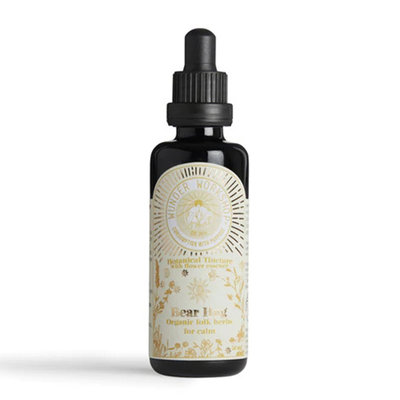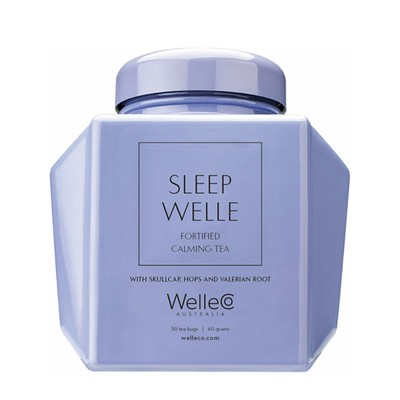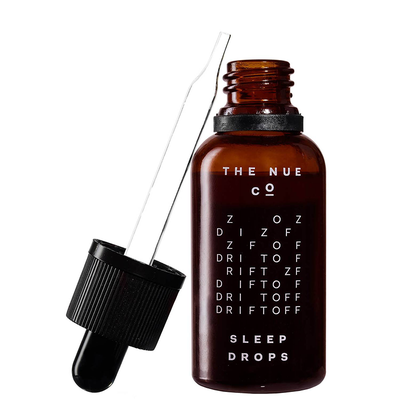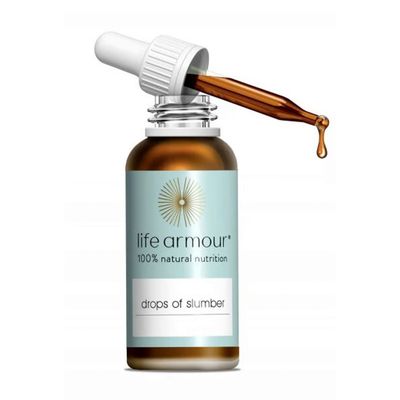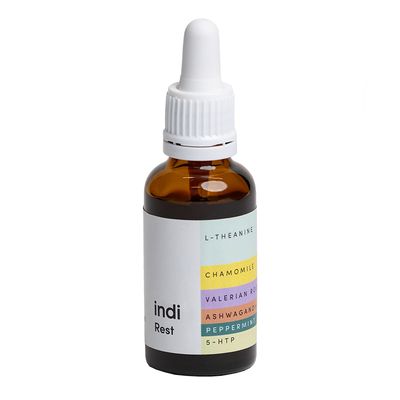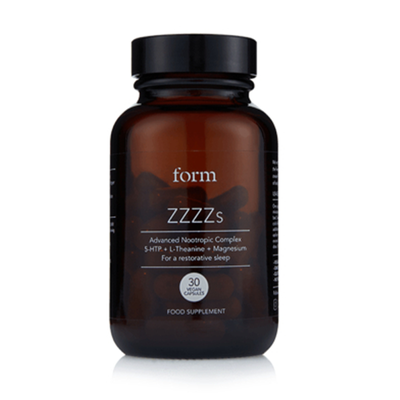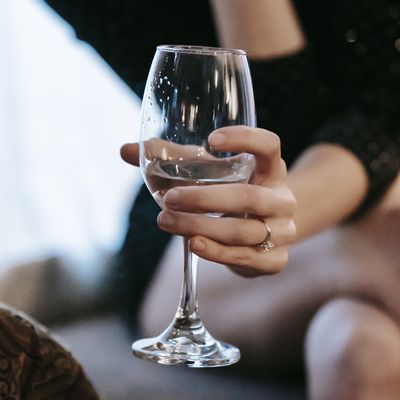
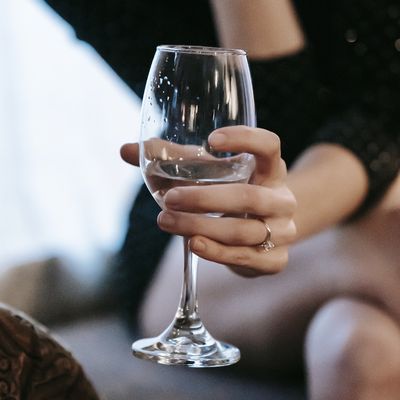
How Alcohol Affects Your Sleep & What To Do About It
All products on this page have been selected by our editorial team, however we may make commission on some products.
Alcohol Throws Your Sleep Cycles Off Balance
A couple of glasses of wine or a few drinks in the evening will probably make you fall asleep faster than normal. But even if you drift off quickly, there’s a good chance that too much alcohol will cause a fitful night of sleep. This is because alcohol disrupts the framework of your sleep, explains nutrition and sleep expert Chris Barker. “Alcohol is considered a somnogen (a sleep-inducing substance), which is why so many people turn to a glass of wine in the evening to help them fall asleep. The problem is that alcohol is also a sedative, and sedation is not the same as sleep. Alcohol fragments your sleep, causing you to wake up more frequently. Most of these awakenings go unnoticed by the sleeper since you don’t remember them, but the more fragmented your sleep, the less restorative it is. Alcohol also suppresses REM sleep, a stage of sleep vital for brain development and emotional processing.”
Just One Glass Of Wine Can Lead To Brain Fog
Dr Nerina Ramlakhan – neurophysiologist and sleep expert – points out that alcohol may well be a relaxant, but it’s also a stimulant. It stops the liver from breaking down stress hormones during the night and can cause you to feel more alert. “This stops you from getting the deep, nourishing sleep you need for optimal energy levels and brain function,” she tells SL. “We all have different tolerances to alcohol, but the more of it you drink, the more it will wreak havoc on your deep sleep, which will throw your brain function off. This is why you often feel mentally groggy and less alert the day after drinking. You also dream during REM sleep, and it is thought that process is vital for our emotional wellbeing, and for making sense of stressful and traumatic events in our lives.”
All Alcohol Has The Same Effect
If you’ve ever opted for a glass of wine over a G&T, believing the former is weaker and will have less of an impact on your sleep, think again. “Alcohol is alcohol,” says Hussain Abdeh, pharmacist for Medicine Direct. “When consumed in large quantities, it will likely disturb your sleep, whether you’re drinking wine, beer or a spirit.” The only exception is if you’re drinking a spirit with a caffeinated mixer. “Studies show that all dosages of alcohol cause an increase in sleep disruption, but if your drink contains any caffeine – a rum and coke, espresso martini or vodka and Red Bull, for example – it’s likely you’ll also get the negative impacts from the caffeine as well as from the alcohol,” adds Chris. He tells us a study done a couple of years ago comparing sleep quality among subjects who consumed different amounts of alcohol found that just one drink is enough to decrease sleep quality by 24%. “In those drinking more than two drinks, sleep quality decreased by 39%.”
Ditching The Nightcap Is A Good Idea
You’ve heard it before, but the key is to drink in moderation and give yourself time before going to bed so the alcohol can clear out of your system. “If you’re having one to two drinks, try to allow at least a couple of hours before going to bed,” advises Nerina. “However, four hours is the ideal amount of time to allow the alcohol to be broken down by your system. If you are drinking more than three drinks, you’ll need to allow much longer before going to bed. If you don’t, it’s likely you’ll have a disrupted night and feel the effects the following morning.”
Be Aware Of The Knock-On Effects
After struggling through a day after a night of poor sleep, you’re bound to sleep like a log, right? Not always, says Nerina. “It’s not uncommon to have a bad night of sleep when you’re hungover, and this is usually because your body is taking time to recover and reset. This can be down to several reasons, including hormone levels, age, how much exercise and outdoor activity you have done during the day or simply anxiety because you previously haven’t slept well the day after drinking. Even if you are suffering from a hangover, make sure you hydrate well, get some exercise – ideally outside in natural light – eat well and wind down properly before bed.”
A Nap The Following Day Can Help
If you’re really struggling, napping can help kickstart energy levels and improve brain function. “Aim for ten to 20 minutes and no more,” says Nerina. “And ideally between 2pm and 4pm, and no later. A power nap, even if you don’t fall asleep, will take you to a state of deep relaxation which revitalise energy levels and help you sleep better at night. You can do it sitting in a chair or try elevating your legs against the wall, or up on a bolster, to reset the nervous system and reduce stress levels.”
If you know you’re going to be drinking, soften the blow with Chris’s advice…
Stay Hydrated: “Dehydration can increase fatigue but also negatively impact sleep. Plus, alcohol can have a diuretic effect on the body, so it’s important to stay hydrated.”
Take A Nap: “Studies have found short naps help improve mood, restore cognitive function and rapidly decrease symptoms of tiredness. A quick power nap (around ten minutes) can provide an energy boost for up to three hours.”
Eat Well: “Foods rich in sulphur – beef, fish, poultry and cruciferous vegetables such as broccoli – help the body produce glutathione, which is one of the most important antioxidants. Glutathione helps reduce oxidative stress in the body (reducing inflammation) and also helps eliminate the toxic by-products of alcohol. Eating foods rich in vitamin C – also an antioxidant – helps keep glutathione levels high.”
Top Up B Vitamins: “Alcohol depletes levels of vitamin B, which are important for your energy’s metabolism. Make sure you are getting enough B vitamins the day after drinking to restore levels and improve your energy.”
For more information, visit DrNerina.com, LifestyleClinicLondon.com & MedicineDirect.co.uk
Give your sleep a helping hand with one of these SL-approved formulas…
DISCLAIMER: We endeavour to always credit the correct original source of every image we use. If you think a credit may be incorrect, please contact us at info@sheerluxe.com.
